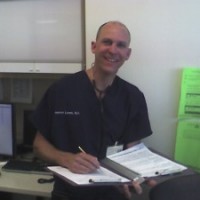Docs underutilize resources for emotional stress
With research showing that burnt-out hospital staff is more prone to unprofessional patient care, a new study in the Archives of Surgery finds that 79 percent of surveyed physicians experienced either a serious adverse patient event and/or a traumatic personal event during the previous year.
But despite the frequency of such stressful occurances–the common predecessor to burnout–physicians fail to use established support resources, according to the study conducted at a large tertiary care academic hospital.
Most physicians (89 percent) said a lack of time prevented them from seeking support, while 68 percent had concerns about confidentiality, and 68 percent thought it would negatively affect their career
With 88 percent of survey respondents choosing fellow physicians as their preferred source of support, the researchers suggest hospitals implement one-on-one peer physician support programs to help physicians effectively manage on-the-job stress.
Similarly, physicians in Ottawa found group counseling eased stress, FierceHealthcare previously reported. The physicians meet every two weeks to talk about stressful experiences at work, such as a difficult patient or a challenging diagnosis.
Hospitals also can use a physician health committee that offers support, emphasizing discussion as a committee, evaluation and treatment to professionals and the use of voluntary medical leave of absence, rather than the punitive culture that physicians worry about.
In addition to peers, support also can come from the top. According to a survey conducted by Physician Wellness Services (PWS) and Cejka Search last fall, healthcare administrators can offer flexible or reduced work hours to help physicians achieve better work/life balance, as well as address conflicts promptly to alleviate disruptive situations.
